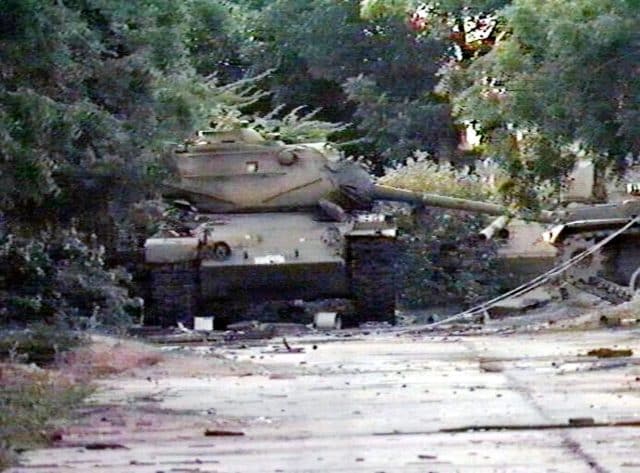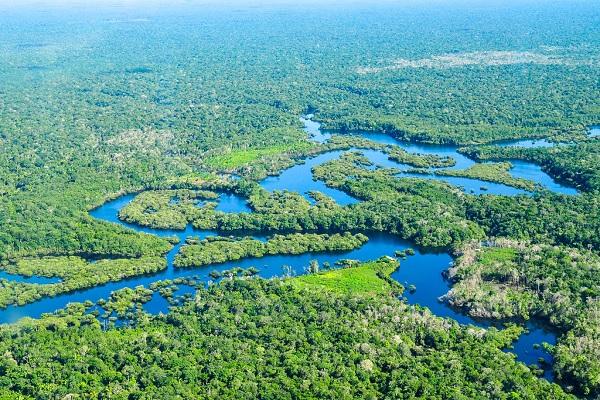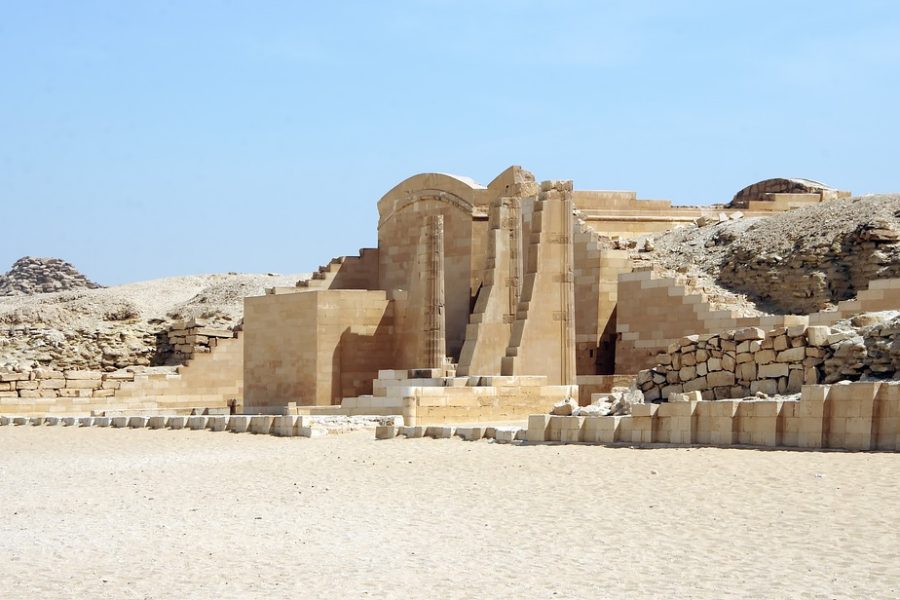It is often claimed that we are living in the most peaceful time in history. That even though reports of violent incidents in the news are apparently on the rise, this is only due to the increased dissemination of information via smartphones and social media, not to an actual increase in violence. While this sounds intuitive, this school of thought is actually based on just one book by a popular Harvard psychologist. Steven Pinker , published in 2011.
This is not entirely inaccurate, although it is a far-reaching conclusion based on a narrow reading of the data. According to one study published in Current Anthropology magazine , although the number of deaths related to violence may be declining in the population, they are still increasing at alarming rates compared to other species in the wild or even hunter-gatherer societies in the past. . The number of deaths related to violence should actually decrease as the population grows, which, it seems like it's completely Not So.
More importantly, since 2011 much happened. While we are not sure whether society has statistically become more peaceful over the past few centuries or not, the number of wars going on right now does not seem to be decreasing. In fact, some of them are in their most intense phase, threatening the safety and well-being of a significant portion of humanity.
10. Tigrayan Rebellion

The Ethiopian government is currently fighting a bloody civil war in the northernmost state of Tigray. As of April 2023, the conflict, which began in November 2020, It has killed more than half a million people and displaced around two million, making it one of the largest conflicts in African history.
In addition to the usual horrors of war, the region is also facing acute hunger. Human rights groups say more 90% population may be in urgent need of humanitarian assistance. However, the fighting is far from over and at the moment it only appears to be escalating. It is a multifaceted conflict, with many different actors involved in different ways, especially neighboring Eritrea.
Ethiopia says it is a separatist war aimed at creating a Tigray state, although the rebels see it as a fight for self-determination. Ethiopia believes Tigray People's Liberation Front (TPLF) is a terrorist organization and regularly carries out counter-insurgency operations, although these have done little to stop the violence. Human rights groups have reported grave war crimes on both sides, although most remain independently unverified and unknown due to the fog of war.
9. World War II

Yes, you read that correctly. And no, World War II is not "obscure." But the fact that it's still going on? Well, that's a little less common knowledge.
The Kuril Islands are a Russian-controlled group of islands off the northern coast of Japan, although they are also claimed by Japan, known locally as the Northern Territories. Occupied during World War II, the islands were originally inhabited by the Ainu people, although they were eventually displaced by Japanese settlers over the centuries. Red Army troops occupied them during the latter stages of the war in 1945 and expelled all its Japanese inhabitants in 1946.
Due to this dispute, Japan and Russia have still not signed an official peace treaty , which means that World War II is still ongoing. Many will consider this a formality, although Japan still considers the islands part of its territory. Moreover, tensions between the two countries have been rising since the invasion of Ukraine, and Russia has clearly used this to deny any possibility of peace negotiations on the islands.
8. Civil War in Colombia

Colombia's current civil war has been going on since 1964, and although peace agreement was signed in 2016, violence continues in many parts of the country. It is difficult to pinpoint exactly who is fighting whom, as the war has so far involved many different actors. These include far-right paramilitary groups, private death squads, corporations , drug cartels, communist organizations such as FARC and ELN, and governments of many countries, including the United States.
Although the situation has improved in recent years, the conflict is still quite active. Much of the violence was directed against local populations suspected of belonging to one of the many armed groups involved in the fighting, and from the very beginning it was reported mass war crimes such asrapes , forced disappearances, torture and murder. Complicating the whole situation is the ongoing global war on drugs, as Colombia is the largest by the manufacturer cocaine in the world.
Still died during the conflict more 220 000 people, although the actual number is believed to be much higher.
7. Kashmir Uprising

The insurgency in Indian-administered Kashmir began in 1989, when members of the Jammu and Kashmir Liberation Front (JKLF) kidnapped the daughter of India's home minister. They demanded an exchange of some of their militants, a request that was eventually granted. The kidnapping was followed by a series of protests across the state, which led to Indian security forces violently dispersing the rebels.
This event is common they call triggered the Kashmiri insurgency in Indian-administered Kashmir, one of the longest running active insurgencies in the world. This was followed by various armed insurgent groups, some of them extremist, springing up across the region in the 1990s; a problem exacerbated by the situation in Afghanistan .
Although Kashmir already had a complex geopolitical status at the time - as it was partly controlled by India, Pakistan and China after the British withdrawal in 1947 - it was the beginning of an armed violent uprising that still kills up to 70 000 people, although the actual number could be much higher. Although its worst phases are long behind us, violence continues in the form of clashes with local forces and counter-terrorism raids in villages across Kashmir.
6. Civil war in Somalia

The ongoing civil war in Somalia dates back to the fall of President Said Barre's government in In 1991 when a bloody rebellion by various armed groups ousted him from power. Since then, the entire country has been devastated by one of the world's longest wars. More than 2.6 million Somalis have been displaced by the conflict , as a result of which today died from 450,000 to 1.5 million people due to factors such as famine, open conflict, terrorist raids, disease and piracy on its northern shores, among many others.
The insurgent groups include extremist organizations such as al-Shabaab, which has often led to a harsh response from government forces, making things worse for civilians. To complicate matters, many different countries have been drawn into the conflict, including forces from Ethiopia, Kenya, the United States, and the African Union, as well as mercenaries and undocumented fighters from around the world, such as al-Qaeda. Reports of war crimes and atrocities against civilians are reported from all sides, although international efforts to end the war have so far proven insufficient.
5. Afghanistan – the war of the Islamic State

The withdrawal of U.S. and allied troops from Afghanistan has left parts of the country in a precarious position. As the Taliban seeks to stabilize the war-torn country, they are – as ridiculous as that sounds – threatened by an increasingly intense civil war with extremist groups, most notably the Afghan branch of the Islamic states .
Known to Afghans as Daesh, the global terrorist organization's attacks have increased in both frequency and death toll since its withdrawal, particularly around Jalalabad. While the Taliban and ISIS have always been at odds with each other, the Taliban now hold sway in Afghanistan, controlling its assets and military. The conflict is in its early stages and is limited to parts of the country around Jalalabad, although it could spiral out of control at any time. Attacks have taken the form of armed raids on government targets, as well as mass terrorist attacks , which have already killed hundreds of civilians across the country.
4. Boko Haram insurgency

Boko Haram is an extremist Islamist group operating in central and west-central Africa. Although it is sometimes referred to as the West African branch of the Islamic State, the two groups are in fact distinct, even if ideologically linked by similar goals of creating a global Islamic state.
Along with terrorizing civilians, Boko Haram is also in open armed rebellion against the Nigerian government with 2009 — a conflict that has killed more than 1,000 people to date 35 000 In recent years, the violence has also spread to neighboring countries such as Chad, Cameroon and Niger, and by the time it is over, it may even have far-reaching consequences beyond Africa.
The humanitarian costs have been particularly high in Nigeria. Since 2009, the group has carried out kidnappings, assassinations, pogroms, bombings of government infrastructure, and many other atrocities aimed at destabilizing the government's control over Nigeria.
3. Civil war in Libya

The Libyan civil war was one of the bloodiest conflicts during the wave of uprisings in the Middle East and North Africa known as the Arab Spring. Since 2011, it has also been one of the first conflicts in the information age, or more precisely, disinformation At its peak, social media was awash with what many now call “fake news” from both sides, making it difficult to get a clearer picture of what was happening on the ground until Gaddafi’s gruesome execution in October 2011. years .
Now, independent researchers and human rights groups have a much clearer picture of the situation. Far from the stability and peace that the uprising promised – at least in theory – Libya is now controlled by various factions and warlords in open conflict with each other and the state, many of whom are radical extremists. In addition to the ravages of war, Libya has also become a haven for slave traders from across the region. It is perhaps the only country with an open slave market , as reported human rights groups and international observers.
2. The Mexican Drug War

The drug war in Mexico can be seen as part of a larger drug war in the region, although it has taken on horrific forms in recent years. Since 2006, armed drug cartel groups have waged a brutal war against the Mexican state. Far from over, the conflict has often spilled over into neighboring regions and has now resulted in more than 300 000 murders throughout Mexico.
Mexican cartels control almost all of the drug trade in the region, and many of them are also in open conflict with each other. Civilians suspected of collaborating with rival gangs are often subjected to inhumane torture and execution. Although Mexican security forces have managed to detain or eliminate leaders of major gangs, including the infamous arrest of El Chapo In 2014, this did little to address the root causes of the conflict.
1. The Houthi Uprising

The war in Yemen began as an armed rebellion by the Houthis against a major state Shiite clan from the northwestern province of Saada – although it has now taken the form of a major proxy war not unlike the one in Syria. Although the conflict goes back far, the current phase began in 2014, when rebels captured Yemen’s capital and largest city, Sanaa, along with the presidential palace.
In March of that year, a 10-nation coalition, including other Gulf states, Egypt, Morocco, Jordan and Pakistan, backed by the United States with weapons and logistics, launched a major operation to recapture cities . Although this did nothing to dislodge the rebels, it did lead to humanitarian catastrophe for the civilian population, which characterizes the conflict to this day. What began as a local uprising against rising prices and corruption has since evolved into proxy war , which involves countries from all over the world, and there is no end in sight.
While its opponents call the movement extremist—and it is in many ways—it is modeled more on Iranian Islamic Revolution , than, say, Al-Qaeda. Incidentally, Al-Qaeda also fights alongside the Islamic State, which is battling both the government and the rebels.













Оставить Комментарий